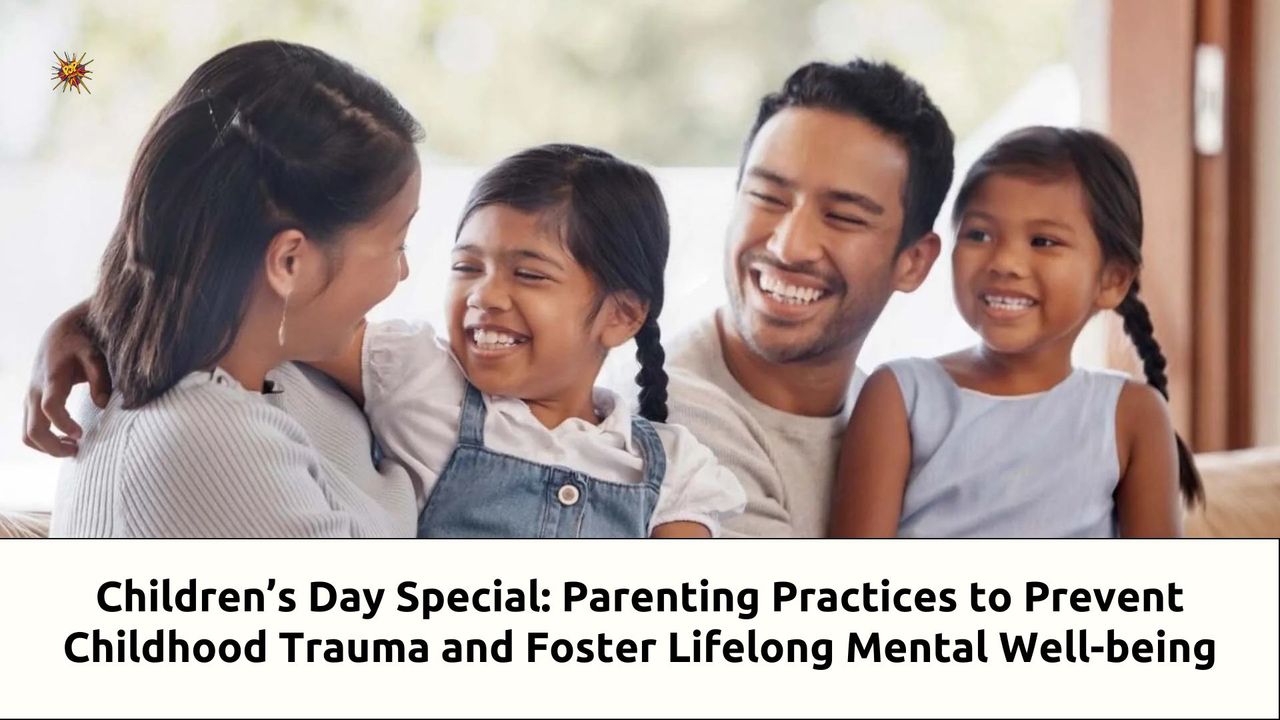THE ISSUE of school violence has been with us for a long time. Even as we try to grapple once again with this issue, TTUTA as its contribution to...
Vous n'êtes pas connecté
- English
- Français
- عربي
- Español
- Deutsch
- Português
- русский язык
- Català
- Italiano
- Nederlands, Vlaams
- Norsk
- فارسی
- বাংলা
- اردو
- Azərbaycan dili
- Bahasa Indonesia
- Հայերեն
- Ελληνικά
- Bosanski jezik
- українська мова
- Íslenska
- Türkmen, Түркмен
- Türkçe
- Shqip
- Eesti keel
- magyar
- Қазақ тілі
- Kalaallisut ; kalaallit oqaasii
- Lietuvių kalba
- Latviešu valoda
- македонски јазик
- Монгол
- Bahasa Melayu ; بهاس ملايو
- ဗမာစာ
- Slovenščina
- тоҷикӣ ; toğikī ; تاجیکی
- ไทย
- O'zbek ; Ўзбек ; أۇزبېك
- Tiếng Việt
- ភាសាខ្មែរ
- རྫོང་ཁ
- Soomaaliga ; af Soomaali
Rubriques :
 Maroc - NEWSDAY.CO.TT - A la Une - Aujourd'hui 05:48
Maroc - NEWSDAY.CO.TT - A la Une - Aujourd'hui 05:48
Our parenting crisis
THE RECENT ugly physical altercation involving two parents outside a secondary school in south Trinidad succinctly underscores a moral dilemma that has befallen the country. Unfortunately, this incident is not unique. Violence is now the preferred solution to almost all disagreements. The abhorrent behaviour displayed by these adults is a stark reminder of the depth of the moral decadence that has assumed prominence in our social landscape. It is a sad reflection of the extent to which our moral institutions have failed in their duty. This is cause for serious collective introspection. Where and why have we gone so wrong as a people and what can we all do to address this decline? School officials have been ringing this alarm bell for a long time, but those voices have been lost in the political noise and culture of indifference. The trend of some parents deliberately and calculatedly instilling values of intolerance, disrespect, dishonesty and indiscipline in their children has resulted in the cancer of student violence characterising many of the nation’s schools. Some homes and families have been falling apart for quite some time, with schools feeling the first negative impacts of that degradation. The sight of parents openly challenging school officials over their attempts to enforce acceptable standards of social behaviour in school has become commonplace. They vociferously defend their children’s inability and refusal to conform. To many citizens, the agenda of individual rights exists in a vacuum, totally ignoring individual responsibility for the maintenance of good social order. Children are taught from infancy through the modelled behaviour of significant adults in their lives that individual rights are absolute. A culture of entitlement and victimhood, combined with anger, hate, distrust, intolerance and absolute disregard for the impact of one’s actions on others constitute the foundation of the socialisation process that characterises many homes and communities, with schools being asked to undertake the impossible task of unilaterally undoing such miseducation. Homes and families constitute the most significant informal education institutions in the lives of children. Patterns of social engagement have their genesis in the home, with parents being the first and most impactful teachers. The successful capitalisation of educational opportunity is contingent on the extent to which the effort of the home can complement that of the school. It is a partnership that is premised on a shared value system where parents ensure that the assumptions of the schooling model are in alignment with the preparation in the home. Children must be taught self-regulation and behaviour limits from a tender age, alongside the need for respect for institutions and people in authority. Peaceful coexistence rather than constant hostility through mutual respect for each other’s territorial integrity must characterise parenting agendas. The value of education must be instilled in the home and reinforced by the community from very early so that there is an appreciation for the schooling opportunity as a means of enlightenment and empowerment. Many commentators have consistently lamented the dilapidated state of our homes and families, demanding politicians wave a singular magic wand to correct a multidimensional social problem. The colonial mentality of apportioning blame to the master for all social ills has become the prevailing dogma of our society, with individuals calculatedly extricating themselves from civic and individual social responsibility for the perpetuation of a just, good and decent society. There must be a more concerted collective effort to improve the quality of parenting in our homes. The social structures (ecclesiastical organisations, community groups and the media) that once guided people into becoming responsible parents must be awakened from their slumber, reaffirming their social responsibility. Individualism and egocentricity must be kept in their place by strong moral voices who are unafraid to condemn abhorrent and antisocial behaviours of adults across the economic, social and cultural spectrum, compelling parents to do their duty to bring up their children in the right way. Our children will continue to display violent behaviours in school if verbal, emotional and physical violence characterise their homes and communities. They are confused when school officials condemn and reprimand antisocial behaviours, because such behaviours characterise their upbringing and thus are normalised. There is an unhealthy divergence between schools and homes when it comes to morality and ethical standards. This has a negative impact on education outcomes. Schools acting singularly cannot reverse this moral degeneration. Accountability systems must be put in place to ensure parents set and maintain the right examples for their children. When parents fail in their duty, society pays the price. The post Our parenting crisis appeared first on Trinidad and Tobago Newsday.
Articles similaires
Problematic technology use among adolescents
Dr Asha Pemberton teenhealth.tt@gmail.com PROBLEMATIC technology use is one of a few terms used to refer to a state of preoccupation, loss of...
HPCL Partners with The Akshaya Patra Foundation to Feed 1000 School Children for a Year
Hindustan Petroleum Corporation Limited (HPCL) has partnered with The Akshaya Patra Foundation to support 1000 students of government and...
Delhi DoE Issues New Guidelines for Special Needs Admissions: Free Resources and Support Mandated for Private Schools
The Delhi Directorate of Education (DoE) has issued guidelines for admitting "Children with Special Needs" (CWSN) to entry-level classes in private...
Australia’s Covid Inquiry Report Is Not Fit For Purpose – OpEd
On 24 October, Jay Bhattacharya, once derided by Anthony ‘Mr Science’ Fauci as a fringe epidemiologist, was awarded the Zimmer Medal for...
Over One Million Children to Suffer Acute Malnutrition in 2025" - A Call For Urgent Action On Nigeria's Nutrition Crisis
By Donald Khadi Philips “By 2025, over one million children in Nigeria will face the devastating reality of acute malnutrition,” reads a...
Children’s Day Special: Parenting Practices to Prevent Childhood Trauma and Foster Lifelong Mental Well-being
Parenting is a delicate balance between nurturing, guiding, and protecting. As children grow, the experiences they encounter shape not only their...
It's Time For Ontario To Get On The Offsite Construction Bandwagon
With 5.8 million new homes needed in Canada by 2031, and the homebuilding sector increasingly under the gun to produce more units, it is time to look...
Education Under Siege: Examining Taliban’s Restrictions On Female Learning And Broader Societal Effects In Afghanistan – Analysis
The return of the Taliban in August 2021 marked a critical turning point for Afghanistan, especially in the realm of women’s rights and education....
'The country asked for measles?' GOP House whip struggles to defend Trump nominee
House Majority Whip Rep. Tom Emmer (R-MN) faced tough questions Friday on CNN about sick kids in his state that left him struggling to defend...
Les derniers communiqués
-
Aucun élément








